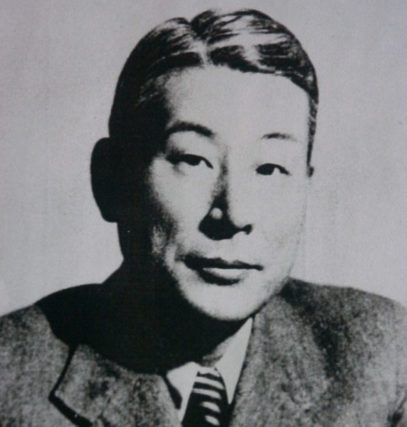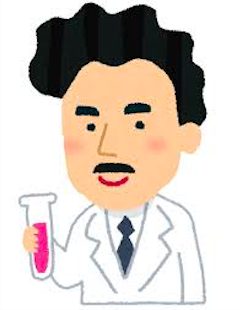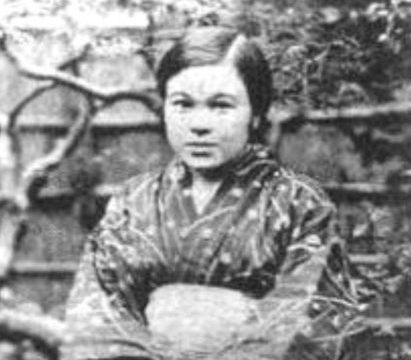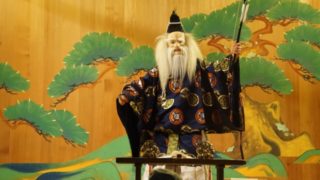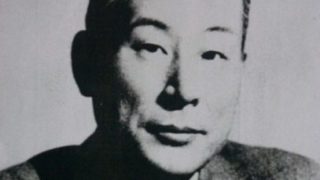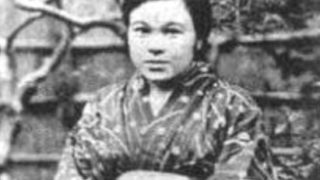During the WW II, a lot of Jews were persecuted and massacred by the Nazis. Expulsion movement against Jews, has happened as soon as Adolf Hitler took the post of prime minister in 1933. At that time, Jews who lived in Germany lost their jobs, and their properties were forfeited. Also atrocities and plunder against Jews were frequently occurring.
After that, Jews who were stripped of their citizenship were no longer regarded as humans, and they were sent to Ghetto where the concentration camps were. In there, a lot of atrocities and shooting by German military had happened. Further, people who tried to flee, elderlies, women and children who weren’t used for labor forces were sent to the mass-killing centers, such as Auschwitz.
The inhumane way of the Nazi Germans was widely well-known over the world, and Chiune Sugihara(杉原千畝) who was a Japanese vice consul in Kaunas, Lithuania at that time also knew about it. A lot of desperate Jewish refugees rushed into the Japanese embassy, in order to ask him to get transit visas because if they got caught by the German military, they would surely get killed.
They needed to meet certain criteria to get visas such as sufficient economic power, but most of the Jewish refugees had come with nothing other than the clothes they were wearing. At that time, a lot of Jews who asked for help crowded round him in the circumstance that the Soviet Union, which conquered Lithuania, ordered the Japanese embassy to get out of the country as soon as possible.
Diplomat Chiune Sugihara made a historic decision within the limited time.
Contents
- 1 The Lifetime, Achievements and Famous Quotes of Chiune Sugihara
- 1.1 Who is Chiune Sugihara? – He is the pride of Japanese
- 1.2 His Background
- 1.3 His Way of Life -He decided to take action with a pure intention to help
- 1.4 His Famous Quotes
- 1.5 Japanese Good Old Custom “That’s obvious”
- 1.6 Chiune Sugihara Memorial Hall in Gifu -The place people recall him
- 1.7 The film “Chiune Sugihara”
- 2 Summary of Chiune Sugihara and Conclusion
The Lifetime, Achievements and Famous Quotes of Chiune Sugihara
Who is Chiune Sugihara? – He is the pride of Japanese
Chiune Sugihara(1900-1986) was a diplomat who worked for the Japanese embassy in Kaunas, Lithuania during the WW II. He was opposed to the commands of Japan’s Ministry of Foreign Affairs, which was to not issue visas to those that don’t meet the criteria, and this saved about 6,000 people when he issued huge amount of transit visas for Jews who fled from European countries, such as Poland, in order to get away from Nazi persecution. He was called “Japan’s Schindler” afterward.
His Background
Chiune Sugihara was a diligent person. His father wanted him to become a doctor, but he was opposed to that. Since he was aspiring to be an English teacher, he studied hard and entered Waseda University. He couldn’t get monetary support from his parents because he was against their intention. Thus, he needed to work hard in a part-time job, but it was still really difficult for him to earn a living.
While in this situation, he found out that there was an international student exam from Ministry of Foreign Affairs. He also found that it was possible to get a scholarship so he prepared well for the exam and fortunately, he passed. After that, he dropped out of Waseda University, and entered the College of the Japanese and Russian Association (Harbin College) in 1919. He learned Russian which was considered as an important language at that time and his study was sponsored by the government. He finished its special course with a brilliant record, and he was employed as a secretariat of Ministry of Foreign Affairs in 1924.
In 1932, he worked for the Japanese embassy in Harbin and got transferred to the Department of Diplomacy in Manchuria because he was proficient in Russian. He took responsibility for the negotiation of North Manchuria Railway Transfer, and he achieved great success. He had witnessed anti-Semitism activities and various affairs caused by the Kwantung army during his tenure of office in Harbin, so he was doubting those inhumane behavior. Through these experiences, he was transferred to Helsinki, Finland in 1937, and Kaunas, Lithuania in 1939.
On July in 1940 (during WWII), Jewish refugees from Poland whose homes were conquered by Germany, fled and rushed into the Japanese embassy in Lithuania where Sugihara worked for, and they made long lines, hoping for transit visas in order to get away from the Nazi persecution. Although he informed this matter to Japan’s Ministry of Foreign Affairs and asked them to permit him to issue the visas, they merely commanded him to follow their direction.
Lithuania was also under the conquest of the Soviet Union at that time, so the Soviet Union had asked each embassy in Lithuania to close and leave from there. Although at that time, his stay in Lithuania was limited and he was bothered about the Japanese government’s command for visas, he finally decided to issue the visas for all refugees regardless of whether they fulfill the criteria or not. Approximately 6,000 Jewish lives were saved with these visas which were called “Visas for Life” afterward.
His Way of Life -He decided to take action with a pure intention to help
His achievement of becoming a diplomat by passing a big-hurdle exam, and made a great performance as a specialist against the Soviet Union, deserves respect. Further, it’s not easy to help people without expecting any benefit in return. This is because there was a possibility for him and his family’s life to be exposed to danger under the circumstance of strong tensions during the wartime.
The Soviet Union ordered him to close the embassy and leave from Lithuania, whereas Jewish refugees had crowded round him every day. He finally decided to issue as many transit visas as possible, and he kept issuing visas without having enough sleep, and kept staying in Kaunas even after his departure period had expired.
Since word processor didn’t even exist at that time, the visas were issued by handwriting. He hurt his hand to a point that he almost couldn’t hold a pen. Despite that, he kept writing visas until the time his train would depart from Kaunas. Apparently, the last piece of “Visas for Life” was given through the train’s window. Mr. Sugihara recalled that and said that it was impossible to abandon them, as a human being.
His Famous Quotes
“I didn’t do any big deal. I did only an obvious thing.”
“What I did might have been wrong as a diplomat, but I couldn’t turn my back on the thousands of people who asked for help.”
Japanese Good Old Custom “That’s obvious”
The reason why I respect Mr. Sugihara is because he saved others’ lives without expecting any benefit, heedless of the danger. It’s a little-known fact, but there were several other Japanese who saved a lot of Jewish refugees besides him, such as Japanese military soldiers Kiichiro Higuchi and Hideki Tojo.
It was not only Jews. Looking back at the past, we can find “The Distress of Frigate Ertuğrul” that speaks of how the Japanese saved the Turks. When the Ottoman Empire’s warship sank near Japan, Japanese civilians saved distressed Turks even though they were facing serious poverty. This was the reason Turkey became friendly to Japan.
The historical figures I mentioned above probably had a good old days’ Japanese perspective; diligence, earnestness, and willingness to help any person who is in trouble. This was obvious thing as a humane norm at that time in Japan. Although it is no longer possible to compare, recently, we are calmly arguing whether we should give up seats for elderlies or not, without any doubt. We should learn from the things that Japanese people used to do as a matter of course in the past, as an example.
Chiune Sugihara Memorial Hall in Gifu -The place people recall him
Yaotsu, Kamo District, Gifu Prefecture is known as the place where he born, and Chiune Sugihara Memorial Hall is a famous sightseeing spot. This Memorial Hall is very attractive because there is the replica of the embassy office room where Mr. Sugihara issued transit visas in Lithuania. There are also data rooms where one can see the terrible sight of The Holocaust and the records what happened to the Jewish refugees after Mr. Sugihara saved them.
His grave is located in Kamakura Cemetery in Kamakura city, Kanagawa prefecture, so his remnants lie there. On February in 2017, an Israel’s bureaucrat visited the grave. This became a hot topic because this was the first time that a bureaucrat visited his grave.
The film “Chiune Sugihara”
In 2015, the film in which Toshiaki Karasawa and Koyuki played the leading parts, was released. The title of the film is “Chiune Sugihara”. I haven’t watched it yet, but it seems to be highly rated; people say, “He is a pride of Japanese” and, “His supportive wife was also great.”
Summary of Chiune Sugihara and Conclusion
Japanese culture and behavior continually gets high commendation around the world, even now. The high levels of Japanese morals during some disaster is so high that it often gets featured on overseas media. This is the legacy which our great predecessors had built. We need to maintain this precious culture that we should be proud of. It doesn’t need to achieve great things, but in our daily life, if we find some persons who are in trouble, we should help them.
Let us keep that in mind!
This is because this was a valuable matter of course in the past.
Next, I will post an article with Japanese together for those who want to learn Japanese.
杉原千畝の生き方、名言に学ぶ「人として当たり前のことをする大切さ」
Learning from the Way of Life of Chiune Sugihara -“Importance of doing the matter of course as a human being”
こんにちは、偉人ライターのやすもとあきです。今回は6000人の命のビザを発行した外交官、杉原千畝の生き方・名言に学びましょう。Hi, I’m Motoaki Yasu. I’m writing about Japanese great figures. I’m going to write about a Japanese diplomat, Chiune Sugihara who issued 6,000 visas during the WW II. Let’s learn his way of life and famous quotes.
第二次世界大戦においてナチス・ドイツによるユダヤ人の迫害および大虐殺が行われた。1933年にアドルフ・ヒトラーが首相に就任すると、すぐにユダヤ人排斥運動が始まり、当時ドイツにいたユダヤ人は仕事を奪われ、財産は没収され、ユダヤ人に対する暴行や略奪も頻発した。
During the WW II, a lot of Jews were persecuted and massacred by the Nazis. Expulsion movement against Jews, has happened as soon as Adolf Hitler took the post of prime minister in 1933. At that time, Jews who lived in Germany lost their jobs, and their properties were forfeited. Also atrocities and plunder against Jews were frequently occurring.
その後市民権まではく奪されたユダヤ人は、1939年第二次世界大戦が始まる頃にはもはや人として扱われず、ユダヤ人収容所であるゲットーへと追い込まれていった。
After that, Jews who were stripped of their citizenship were no longer regarded as humans, and they were sent to Ghetto where the concentration camps were.
ゲットー内でもドイツ兵による暴行や銃殺が横行し、脱走しようとした者や、労働力の無い老人や女性、子供の大半は、やがてアウシュビッツなどの絶滅収容所に送られる。
In there, a lot of atrocities and shooting by German military had happened. Further, people who tried to flee, elderlies, women and children who weren’t used for labor forces were sent to the mass-killing centers, such as Auschwitz.
ナチスドイツの非人道的なやり方は世界各地に知れ渡っており、リトアニアのカウナスに赴任していた杉原千畝もそれを把握していた。
The inhumane way of the Nazi Germans was widely well-known over the world, and Chiune Sugihara(杉原千畝) who was a Japanese vice consul in Kaunas, Lithuania at that time also knew about it.
その杉原のもとに、ビザの発行を求める大勢のユダヤ難民がわらをもすがる思いで押し掛ける。ドイツ軍に捕われればもう命は無いも同然。
A lot of desperate Jewish refugees rushed into the Japanese embassy, in order to ask him to get transit visas because if they got caught by the German military, they would surely get killed.
ビザの発行は、経済力などの条件を十分に満たしていないと許可されなかったが、大半のユダヤ難民は着の身着のまま逃れてきた者達だった。
They needed to meet certain criteria to get visas such as sufficient economic power, but most of the Jewish refugees had come with nothing other than the clothes they were wearing.
当時リトアニアを支配していたソ連から、カウナスから早々に退去するよう要求がくるなか、眼前に助けを求めて群がるユダヤ難民。
At that time, a lot of Jews who asked for help crowded round him in the circumstance that the Soviet Union, which conquered Lithuania, ordered the Japanese embassy to get out of the country as soon as possible.
限られた時間のなかで、外交官杉原千畝は歴史に残る尊い決断をする。
Diplomat Chiune Sugihara made a historic decision within the limited time.
————————
もくじ
Contents杉原千畝の生涯・行動・名言
The lifetime, achievements and famous quotes of Chiune Sugihara日本人の誇り—杉原千畝とは
Who is Chiune Sugihara? -He is the pride of Japanese杉原千畝の生い立ち
His Background杉原千畝の生き方ー助けたい一心で決断・行動した
His Way of Life -He decided to take action with a pure intention to help杉原千畝の名言
His Famous Quotes古き良き日本の「当たりまえ」の行い
Japanese Good Old Custom “That’s obvious”杉原千畝記念館、岐阜県で偉人をしのぶ場所
Chiune Sugihara Memorial Hall in Gifu -The place people recall him映画 杉原千畝
The film “Chiune Sugihara”杉原千畝まとめ
Summary of Chiune Sugihara and Conclusion————————
杉原千畝の生涯・行動・名言
The Lifetime, Achievements and Famous Quotes of Chiune Sugihara
日本人の誇り—杉原千畝とは
Who is Chiune Sugihara? – He is the pride of Japanese
杉原千畝(すぎはらちうね 1900年(明治33年)1月1日 – 1986年(昭和61年)7月31日)は、第二次世界大戦中リトアニアのカウナス領事館に赴任していた日本の外交官である。
Chiune Sugihara(1900-1986) was a diplomat who worked for the Japanese embassy in Kaunas, Lithuania during the WW II.
ナチス・ドイツの迫害から逃れるため、ポーランドをはじめとする欧州各地から避難してきたユダヤ人に、当時の日本の外務省の訓令に反し、大量のビザを発行しおよそ6,000人もの命を救った人物。
He was opposed to the commands of Japan’s Ministry of Foreign Affairs, which was to not issue visas to those that don’t meet the criteria, and this saved about 6,000 people when he issued huge amount of transit visas for Jews who fled from European countries, such as Poland, in order to get away from Nazi persecution.
俗に「東洋のシンドラー」とも呼ばれている。
He was called “Japan’s Schindler” afterward.
杉原千畝の生い立ち
His Background
杉原千畝は大変な努力家であった。杉原の父は息子に医師になることを望んでいたが、杉原はそれを嫌がり、英語の教師を目指して勉学に励み早稲田大学に進学する。
Chiune Sugihara was a diligent person. His father wanted him to become a doctor, but he was opposed to that. Since he was aspiring to be an English teacher, he studied hard and entered Waseda University.
しかし親の意思に反した進学だったため、仕送りも受けられず、アルバイトをして凌いでいたものの、やがて生活苦に陥る。
He couldn’t get monetary support from his parents because he was against their intention. Thus, he needed to work hard in a part-time job, but it was still really difficult for him to earn a living.
そんななか、外務省留学生試験というものがあることを知り、公費で勉強ができるとわかった千畝はその試験に向けて猛勉強を始めた。そして見事合格する。
While in this situation, he found out that there was an international student exam from Ministry of Foreign Affairs. He also found that it was possible to get a scholarship so he prepared well for the exam and fortunately, he passed.
その後早稲田を中退し、1919年、日露協会学校(のちのハルビン学院)に入学する。
After that, he dropped out of Waseda University, and entered the College of the Japanese and Russian Association (Harbin College) in 1919.
外務省の官費留学生として、当時重要視されていたロシア語を学ぶ。
He learned Russian which was considered as an important language at that time and his study was sponsored by the government.
その後同校の特修科を優秀な成績で修了し、1924年には外務省書記生として採用される。
He finished its special course with a brilliant record, and he was employed as a secretariat of Ministry of Foreign Affairs in 1924.
1932年にハルビンの日本総領事館にいた杉原は、満州国の外交部に出向し、ロシア語の堪能さを買われ、対ソ連との北満州鉄道譲渡交渉を担当しその交渉において大きな成果を上げる。
In 1932, he worked for the Japanese embassy in Harbin and got transferred to the Department of Diplomacy in Manchuria because he was proficient in Russian. He took responsibility for the negotiation of North Manchuria Railway Transfer, and he achieved great success.
このハルビン在職期に、さまざまな反ユダヤ活動や関東軍による事件を目の当たりにし、それらの非人道的な行いに疑問を抱くようになる。
He had witnessed anti-Semitism activities and various affairs caused by the Kwantung army during his tenure of office in Harbin, so he was doubting those inhumane behavior.
そうした経験を経て1937年にはフィンランドの在ヘルシンキ日本公使館へ、1939年にはリトアニアの在カウナス日本領事館へと赴任する。
Through these experiences, he was transferred to Helsinki, Finland in 1937, and Kaunas, Lithuania in 1939.
そして第二次世界大戦が既に始まっていた1940年7月、ドイツ占領下のポーランドからリトアニアに逃れてきたユダヤ系難民が杉原のいる日本領事館に押しかけ、迫害から逃れるためにビザの発行を求める行列をつくる。
On July in 1940 (during WWII), Jewish refugees from Poland whose homes were conquered by Germany, fled and rushed into the Japanese embassy in Lithuania where Sugihara worked for, and they made long lines, hoping for transit visas in order to get away from the Nazi persecution.
杉原は日本の外務省に難民の現状を伝え、要件を満たさない難民にもビザの発行許可を求めるものの、外務省はあくまでも訓令に従うよう指示するのみであった。
Although he informed this matter to Japan’s Ministry of Foreign Affairs and asked them to permit him to issue the visas, they merely commanded him to follow their direction.
そして当時リトアニアはソ連の占領下にあり、各国の在リトアニア領事官や大使館に早々に閉鎖し撤退するよう求めていた。
Lithuania was also under the conquest of the Soviet Union at that time, so the Soviet Union had asked each embassy in Lithuania to close and leave from there.
リトアニアに居られる時間も限られているうえ、全難民に発給許可が下りないという状況で悩んだ杉原は、意を決して要件を満たしているか否かに拘らず全ての難民にビザを発行し始める。
Although at that time, his stay in Lithuania was limited and he was bothered about the Japanese government’s command for visas, he finally decided to issue the visas for all refugees regardless of whether they fulfill the criteria or not.
のちに「命のビザ」と呼ばれるこのビザによって、およそ6,000人ものユダヤ人の命が救われた。
Approximately 6,000 Jewish lives were saved with these visas which were called “Visas for Life” afterward.
杉原千畝の生き方ー助けたい一心で決断・行動した
His Way of Life -He decided to take action with a pure intention to help
苦学のすえ難関試験を突破し外交官になったことや、その後優秀な対ソ連のスペシャリストとして活躍したことだけでも尊敬に値するであろう。
His achievement of becoming a diplomat by passing a big-hurdle exam, and made a great performance as a specialist against the Soviet Union, deserves respect.
そして無償で人を助けるということは、そう簡単にできるものではない。
Further, it’s not easy to help people without expecting any benefit in return.
戦時中の緊迫したなか、場合によっては自分や家族の生活、命さえも危険にさらされる可能性もあったのだ。
This is because there was a possibility for him and his family’s life to be exposed to danger under the circumstance of strong tensions during the wartime.
ソ連から早急に領事館を閉鎖し退去するよう迫られる一方で、目の前に連日群がるユダヤ難民。
The Soviet Union ordered him to close the embassy and leave from Lithuania, whereas Jewish refugees had crowded round him every day.
「できる限り多くの人を助ける」決意をした杉原は、退去期限が過ぎてもカウナスに居座り続け、寝る間も惜しんでビザを発行し続けた。
He finally decided to issue as many transit visas as possible, and he kept issuing visas without having enough sleep, and kept staying in Kaunas even after his departure period had expired.
ワープロさえなかった時代、ビザは手書きだ。
Since word processor didn’t even exist at that time, the visas were issued by handwriting.
手を酷使したためペンが握れなくなるほど手を痛めた。
He hurt his hand to a point that he almost couldn’t hold a pen.
それでも、カウナスを去る当日、列車が出発するまでビザ発行をし続けた。
Despite that, he kept writing visas until the time his train would depart from Kaunas.
最後の「命のビザ」は列車の窓から手渡されたという。
Apparently, the last piece of “Visas for Life” was given through the train’s window.
当時のことを杉原は、人として到底見捨てることなどできなかったという風に述べている。
Mr. Sugihara recalled that and said that it was impossible to abandon them, as a human being.
杉原千畝の名言
His Famous Quotes
「大したことをしたわけではない。当然のことをしただけです」
“I didn’t do any big deal. I did only an obvious thing.”
「私のしたことは外交官としては、間違ったことだったかもしれない。しかし 私には頼ってきた何千人もの人を見殺しにすることはできなかった」
“What I did might have been wrong as a diplomat, but I couldn’t turn my back on the thousands of people who asked for help.”
古き良き日本の「当たりまえ」の行い
Japanese Good Old Custom “That’s obvious”
筆者が杉原を尊敬している理由は、ひとえに自身を顧みず無償で他人を救ったからである。
The reason why I respect Mr. Sugihara is because he saved others’ lives without expecting any benefit, heedless of the danger.
そして杉原ほど一般的に知られてはいないが、元日本陸軍の軍人、樋口季一郎、東条英機など、多くのユダヤ難民を救った日本人は他にもいる。
It’s a little-known fact, but there were several other Japanese who saved a lot of Jewish refugees besides him, such as Japanese military soldiers Kiichiro Higuchi and Hideki Tojo.
ユダヤ人だけではない。
It was not only Jews.
過去をさかのぼれば、トルコ人の命を日本人が救ったエルトゥールル号遭難事件などもある。
Looking back at the past, we can find “The Distress of Frigate Ertuğrul” that speaks of how the Japanese saved the Turks.
日本でオスマン帝国の船が沈没した際、遭難したトルコ人を、民間の人達が自身も物資不足で大変ななか救ったのだ。
When the Ottoman Empire’s warship sank near Japan, Japanese civilians saved distressed Turks even though they were facing serious poverty.
これをきっかけにトルコは親日国となった。
This was the reason Turkey became friendly to Japan.
上記に挙げた人々はかつての古き良き日本の平均的日本人であったのだろう。勤勉で真面目、そして目の前の困っている人を助ける。
The historical figures I mentioned above probably had a good old days’ Japanese perspective; diligence, earnestness, and willingness to help any person who is in trouble.
当時の日本はそれが「人として当たりまえ」のことであったのだ。
This was obvious thing as a humane norm at that time in Japan.
もはや比べることさえ無理があるが、お年寄りに席を譲るか否かの議論が平然となされる昨今、私達はかつての日本人が「当たりまえ」にしていたことを改めてお手本とすべきではないだろうか。
Although it is no longer possible to compare, recently, we are calmly arguing whether we should give up seats for elderlies or not, without any doubt. We should learn from the things that Japanese people used to do as a matter of course in the past, as an example.
杉原千畝記念館、岐阜県で偉人をしのぶ場所
Chiune Sugihara Memorial Hall in Gifu -The place people recall him
杉原生誕の地といわれている岐阜県加茂郡八百津町には杉原千畝記念館があり、観光スポットとして有名である。
Yaotsu, Kamo District, Gifu Prefecture is known as the place where he born, and Chiune Sugihara Memorial Hall is a famous sightseeing spot.
杉原が命のビザを発行したリトアニア領事官執務室の部屋を再現したものや、ホロコーストの惨状、杉原が救ったユダヤ難民がその後どうなったのかがわかる資料室もあり、見どころ満載だ。
This Memorial Hall is very attractive because there is the replica of the embassy office room where Mr. Sugihara issued transit visas in Lithuania. There are also data rooms where one can see the terrible sight of The Holocaust and the records what happened to the Jewish refugees after Mr. Sugihara saved them.
お墓は神奈川県鎌倉市にある鎌倉霊園にあり、そこに杉原は眠っている。
His grave is located in Kamakura Cemetery in Kamakura city, Kanagawa prefecture, so his remnants lie there.
2017年2月にはイスラエル官僚が墓参りをしており、官僚による参拝は初めてだったので話題になった。
On February in 2017, an Israel’s bureaucrat visited the grave. This became a hot topic because this was the first time that a bureaucrat visited his grave.
映画 杉原千畝
The film “Chiune Sugihara”
2015年、唐沢寿明さん、小雪さんが主演した映画が公開された。
In 2015, the film in which Toshiaki Karasawa and Koyuki played the leading parts, was released.
タイトルはそのまま「杉原千畝」である。私はまだ見ていないが「日本が誇る偉人」「支えた奥さんも素晴らしい」と評価が高いようだ。
The title of the film is “Chiune Sugihara”. I haven’t watched it yet, but it seems to be highly rated; people say, “He is a pride of Japanese” and, “His supportive wife was also great.”
杉原千畝まとめ
Summary of Chiune Sugihara and Conclusion
今でも日本の文化、日本人の振舞いや行いは世界中で高い評価を得ている。
Japanese culture and behavior continually gets high commendation around the world, even now.
災害時の日本人のモラルの高さは海外のメディアでも取り上げられるほどだ。
The high levels of Japanese morals during some disaster is so high that it often gets featured on overseas media.
これらみな、私達の偉大な「先輩達」が築き上げてきたものなのである。
This is the legacy which our great predecessors had built.
その貴重な誇り高い文化を、これからも保っていくべきではないか。
We need to maintain this precious culture that we should be proud of.
別に偉業を達成しなくてもいい、日々の生活のなかで、困っている人や弱い人がいたら助ける、手を貸す。
It doesn’t need to achieve great things, but in our daily life, if we find some persons who are in trouble, we should help them.
それを心掛けようではないか。
Let us keep that in mind!
かつてはそれが当たり前だったのだから。
This is because this was a valuable matter of course in the past.
